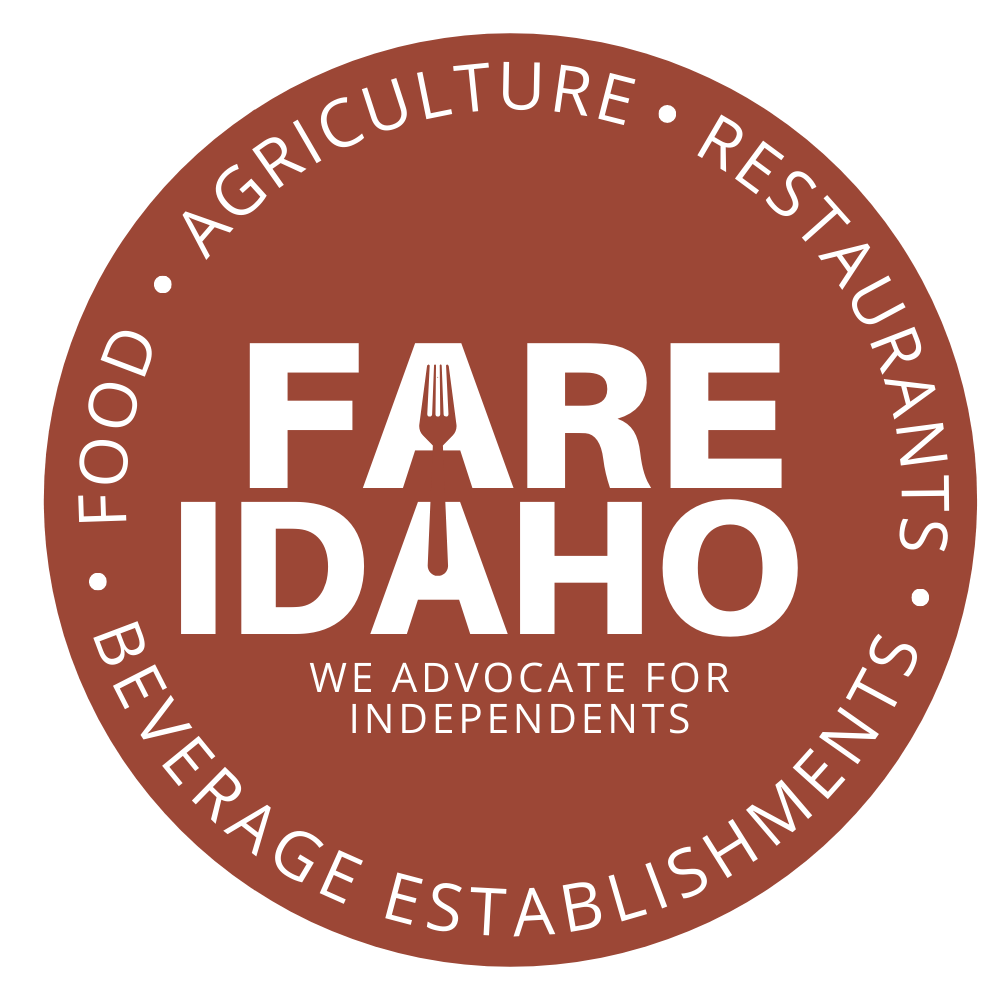A FARE Fight for Idaho Food
Photo by Mari Isaac
Inside one nonprofit’s pandemic battle to strengthen the Gem State food system
by Lex Nelson
Photo by Mari Isaac
When Katie Baker first heard about FARE Idaho in April 2020, she was already working full-time. But the nonprofit’s mission seized her so completely that she volunteered — for 30 hours a week.
“FARE” stands for Food, Agriculture, Restaurants, and beverage Establishments, and its name comes from the people it serves. The statewide collective formed in reaction to the COVID-19 pandemic. Its founders — including Boise restaurateur Dave Krick, Moscow restaurateur George Skandalos, and University of Idaho educator Colette DePhelps — wanted to connect every level of Idaho’s food system. They hoped that together, FARE’s members could fight for pandemic aid badly needed in the food industry.
The effort started small. A few members met on Zoom to share their hardships and hopes.
“When COVID hit and we hosted roundtable discussions or just talked to people, they were super scared,” Baker remembered. “They thought they were going to lose their businesses.”
Photo by Mari Isaac
Pandemic trauma forged bonds between restaurant owners, beverage producers, farmers, and food co-ops across the state. As FARE’s membership grew, so did its influence. It launched the “Dine Drink Safe” pledge to highlight establishments committed to COVID-19 safety precautions, and fought for the creation of the Restaurant Revitalization Fund.
A year later, the nonprofit offers company healthcare plans, tax advice, discounts, and more to 250 members. In November 2021 it hired an Idaho Public Affairs Advisor to lobby on issues like licensed beverage, livestock processing, and farmland protection.
“With 250 members, we have the opportunity to call our representatives and have our phone calls answered,” Baker said.
Today, Baker is FARE’s executive director. She feels the four months volunteering on nights and weekends were worth it. So was jumping ship from her day job to make Idaho’s food system more resilient.
Photo by Mari Isaac
“I remember telling my husband, ‘I’m going to leave this job where I make quite a bit of money and take this risky position with FARE Idaho,’ and he said to me, ‘You have no other choice. You have to do that,’” she said.
As executive director, Baker travels the state learning about FARE members’ businesses and how to serve them better. She helped launch FARE Idaho’s sister nonprofit, Project FARE, to tell Idaho’s food, farming, and beverage stories, and represents Idaho on the leadership team of the Independent Restaurant Coalition — a national group battling to refill the Restaurant Revitalization Fund.
At home, Baker practices the local food ethic FARE preaches. She keeps a garden, raises chickens, and has volunteered for the Boise Farmers Market and the food co-op Idaho’s Bounty. The kids in her Boise neighborhood even call her “Farmer Katie.” But it took a real farmer to remind her why her work at FARE matters.
When she worried early in the pandemic about prioritizing stricken restaurants over FARE’s other members, a member farmer reminded her, “‘We’re a whole system. If they’re not doing well, we’re not doing well.’”
“That really brought it home to me,” Baker said. “It’s not always going to be evenly divided, but each of the groups we represent is going to need our help at one time or another, and that’s where we jump in.”





